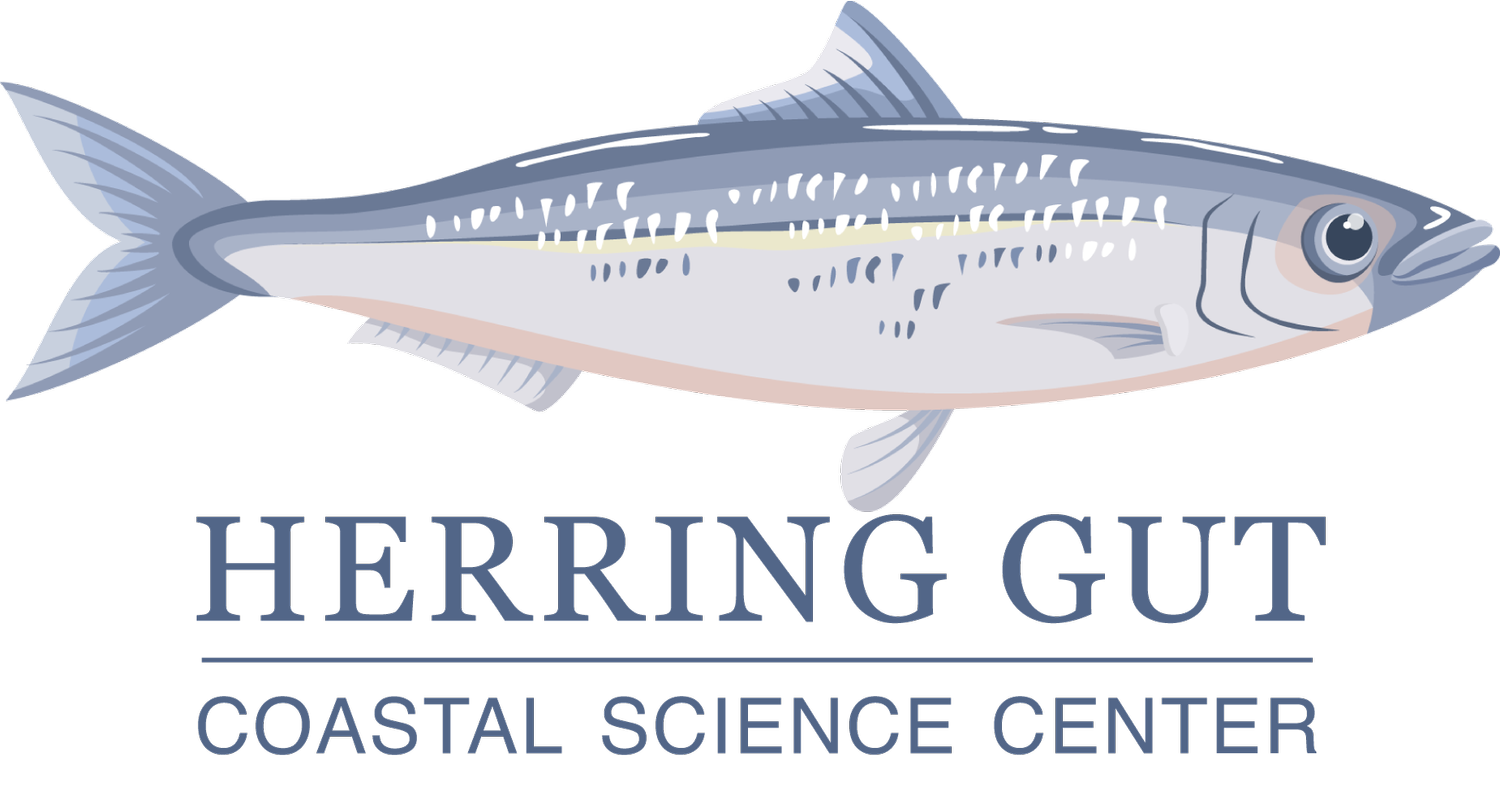
“Beneath the Waves”
“Beneath the Waves” is an interactive documentary following a group of scientists studying the marine environment of the Kimberley in Australia. This website is segmented into chapters focusing on the larger research mission; as you watch the chapters, you unlock shorter videos focusing on specific creatures, adaptations, methodologies. This resource lends itself well to reflections by students and short reports on organisms that they learn about in the documentary.

“The Deep Sea”
“The Deep Sea” is an interactive website in which students can scroll to explore the depths of our oceans. The organisms on the screen represent the deepest known depth at which they can be found, for example Great Barracuda can be found at 92 meters (301 ft)! Students can compare adaptations of organisms found at increasing depths as well as practice math conversion skills to try to understand how deep our oceans truly are.
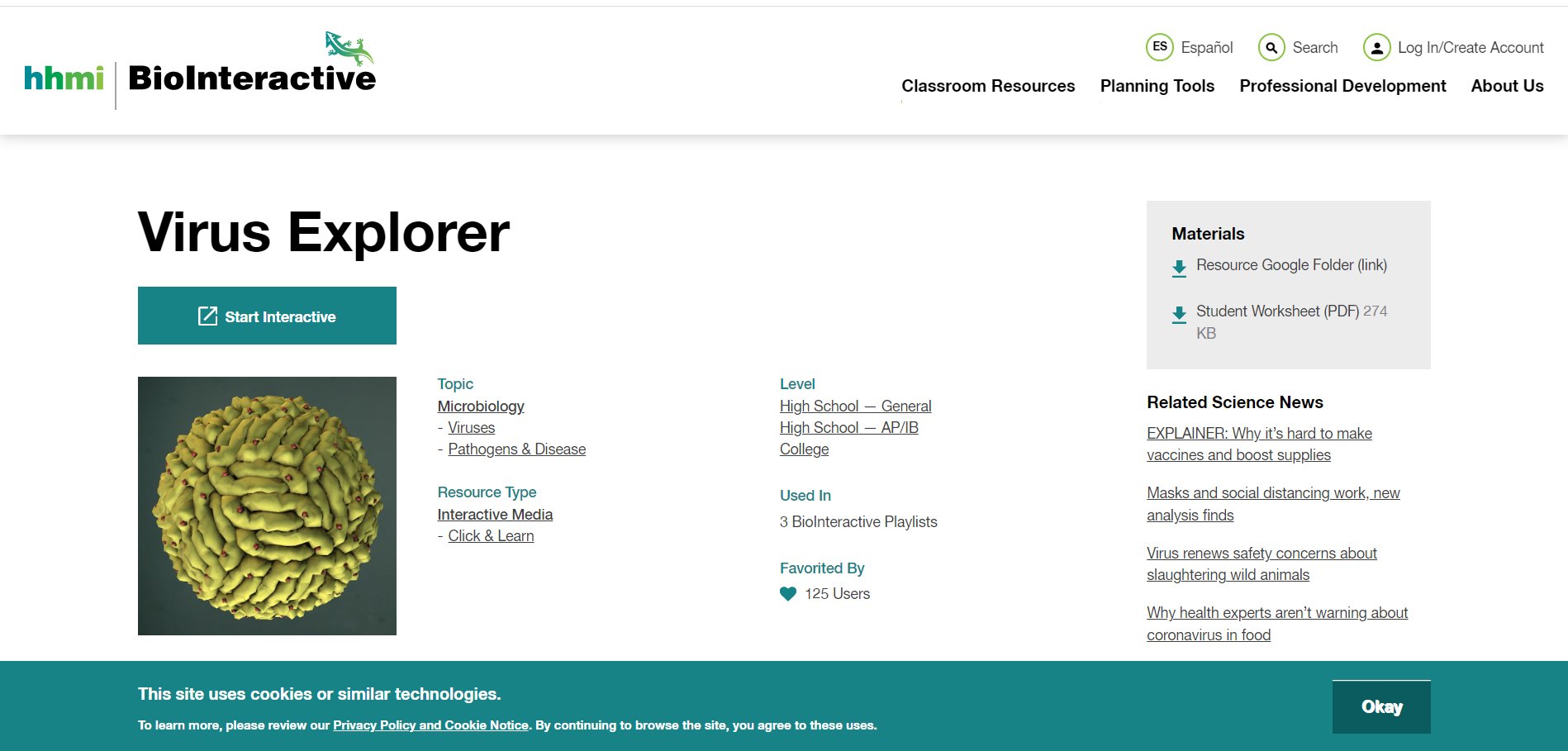
“Virus Explorer”
“Virus Explorer” by hhmi Biointeractive is an interactive resource focusing on the diversity of viruses. Use this resource to make comparisons about different aspects of viruses such as structure and host range. Hhmi Biointeractive offers many interactive resources for different age groups.

NOAA’s Ocean Exploration and Research
NOAA’s Ocean Exploration and Research page has links to expeditions to previously unknown parts of our oceans. Search by location, year, or topic and find a dive to explore! Each dive’s page has lots of information about the data gathered on that dive as well as photos and exciting discoveries!

Your Plan Your Planet
Your Plan Your Planet is an interactive resource about sustainability made by Google. This website has four categories (stuff, water, energy, and food) that you can click through, take quizzes, and learn about sustainability of each of these resource types. For example, the water page shows you how much water your shower uses based on length of shower and shows tips on how to save water in your house.
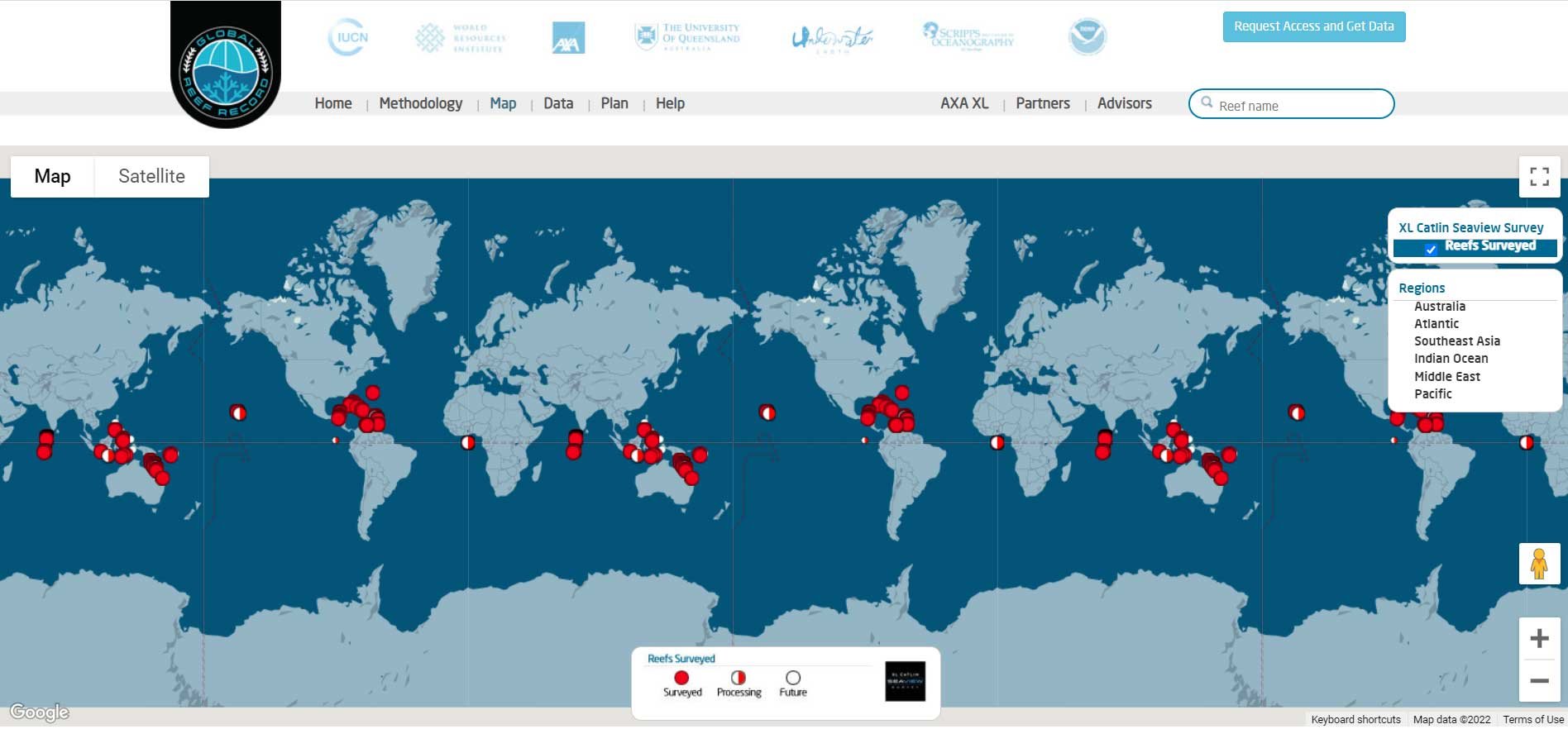
Global Reef Record
Global Reef Record project worked with divers to record images during dives around the world. You can click through these images using their map explorer or you can watch the videos on their YouTube page linked here (Global Reef Record YouTube). These videos are really similar to what you would see while diving – as a diver, it was fascinating to have an underwater experience when we can’t actually dive right now.
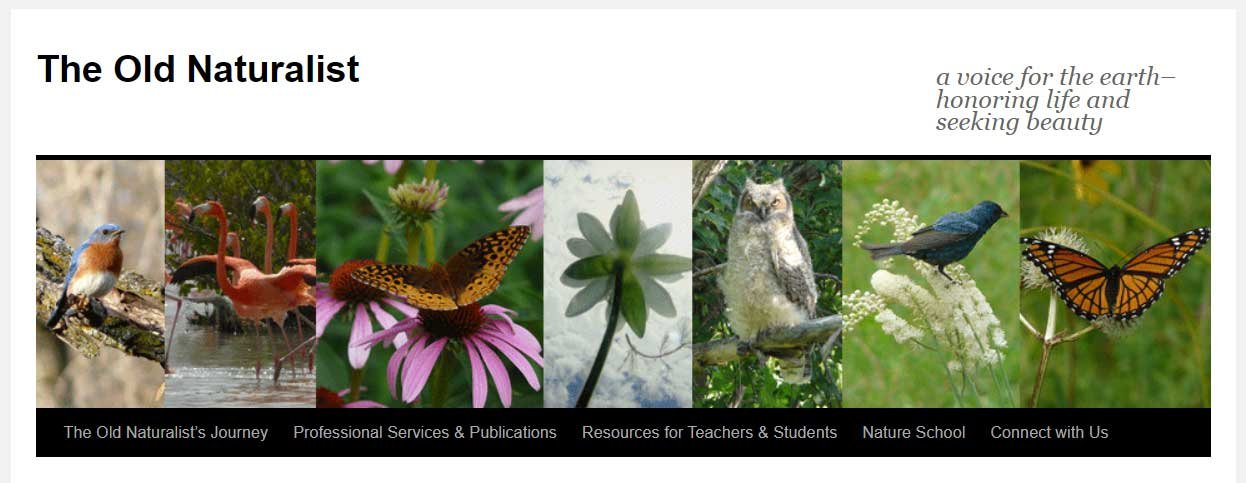
The Old Naturalist
The Old Naturalist just made available various lessons focused on marine environments or species with student activity sheets linked on each page.

Virtual Visit at New England Aquarium
Virtual Visit at New England Aquarium allows students to take a peek behind the scenes of the aquarium. The site also includes many at-home activities for students from coming up with new ways to capture invasive lionfish to tracking white shark movements around our oceans.

NOAA Marine Sanctuaries
NOAA Marine Sanctuaries has created a host of web-based resources for students for further enrichment of remote learning. The photos and videos of national marine sanctuaries are stunning and the 360 degree virtual dive videos are really engaging.
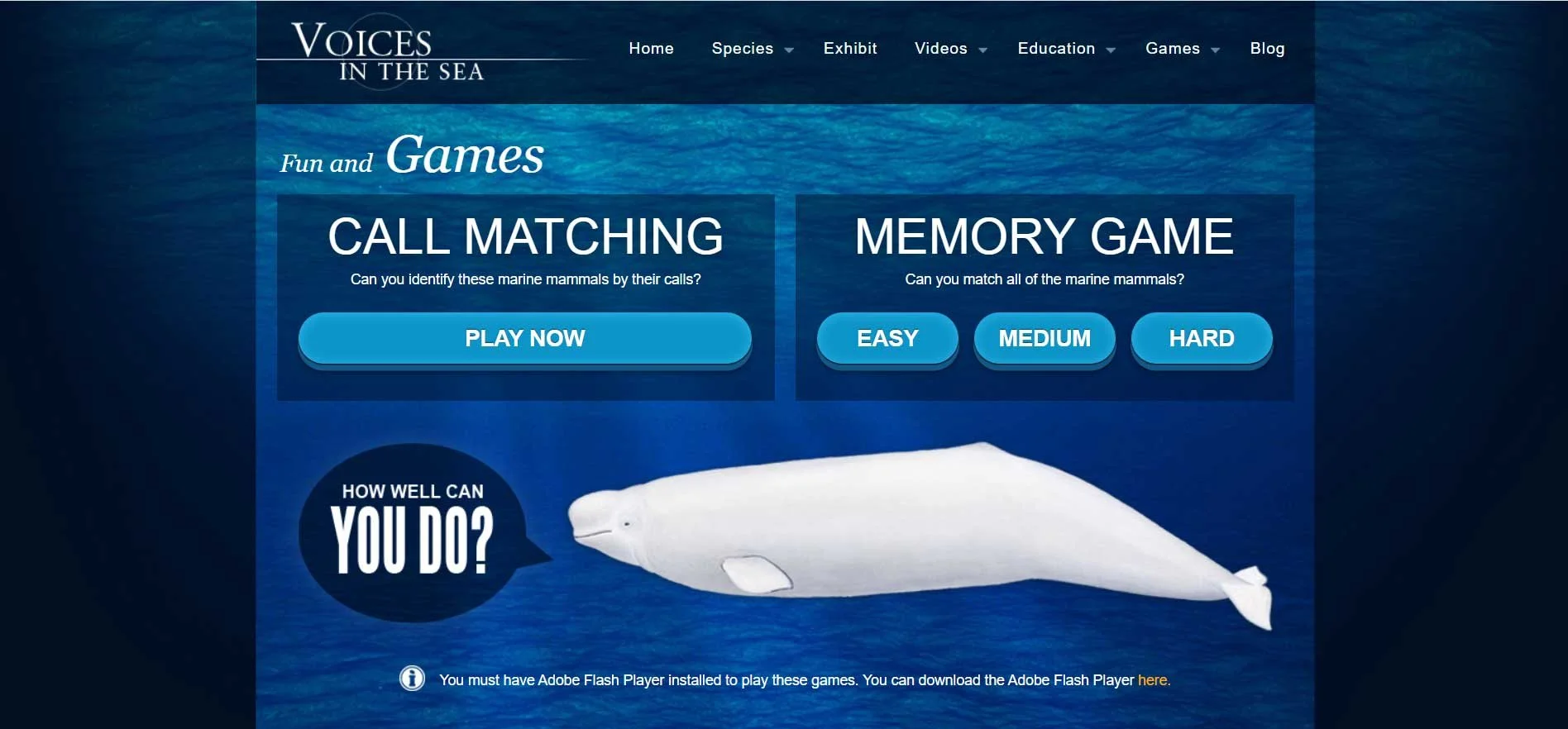

Explore.org live cams
Explore.org live cams feature many different ecosystems, locations, species, etc. The website also has many documentaries. These resources can be used in conjunction with other lesson plans or worksheets or as a window into the natural world.

The Calm app
The Calm app is providing free resources during this COVID19 pandemic to help address the anxiety that many of us are trying to manage. These resources are student-friendly and are a good way to develop health habits around mindfulness.

Bow Seat's Our Ocean in a Changing Climate Learning Guide
Bow Seat’s Our Ocean in a Changing Climate Learning Guide is a great resource for introducing climate change’s impacts on our oceans as well as guide students through creative thinking and the artistic process for developing their own artwork and even entering the 2020 Ocean Awareness Contest!

The Global Foundation for Ocean Exploration
The Global Foundation for Ocean Exploration has some amazing ocean-related education resources. Take a deep dive into shipwrecks or get swallowed by the world of corals! Each topic has a variety of resources, from videos and diagrams to essays and career information. These resources are geared towards middle and high school students.

National Geographic’s Resource Library for Learning at Home
National Geographic’s Resource Library for Learning at Home (link here is for middle and high school students) is full of interesting and engaging lessons for students on a wide variety of topics. For example, the Interrupted Migrations lesson centers on human impacts on animal migration and has students mapping human and animal movements and finally creating a board game to simulate animal migrations in hopes of encouraging conservation efforts.

Everblue’s At Home Education
Everblue’s At Home Education page is filled with engaging, at-home lessons based on scientific publications on marine science. These lessons are made for K-8 students and can be adapted for both remote learning and classrooms! The reef community Choose-Your-Own-Adventure story was particularly fun!

Bird Song Hero: The Song Learning Game for Everyone
Bird Song Hero: The Song Learning Game for Everyone is an interactive way to learn more about the birds that you might be hearing in your backyard! This increasingly challenging game teaches you how to recognize bird songs – take your newly learned skills for a spin outside!

New England Aquarium’s Counting Fish in the Sea lesson
New England Aquarium’s Counting Fish in the Sea lesson teaches kids how scientists do surveys of fish in the ocean. This lesson involves math as well!

New England Aquarium’s Seahorse Camouflage Lesson
New England Aquarium’s Seahorse Camouflage lesson incorporates art in a lesson about fish coloration and adaptations!

National Geographic Online Webquest
The National Geographic Online Webquest is an open ended assignment created for high school students, but could be geared towards students of all ages. This assignment encourages students to explore an interest related to nature and learn something new!
